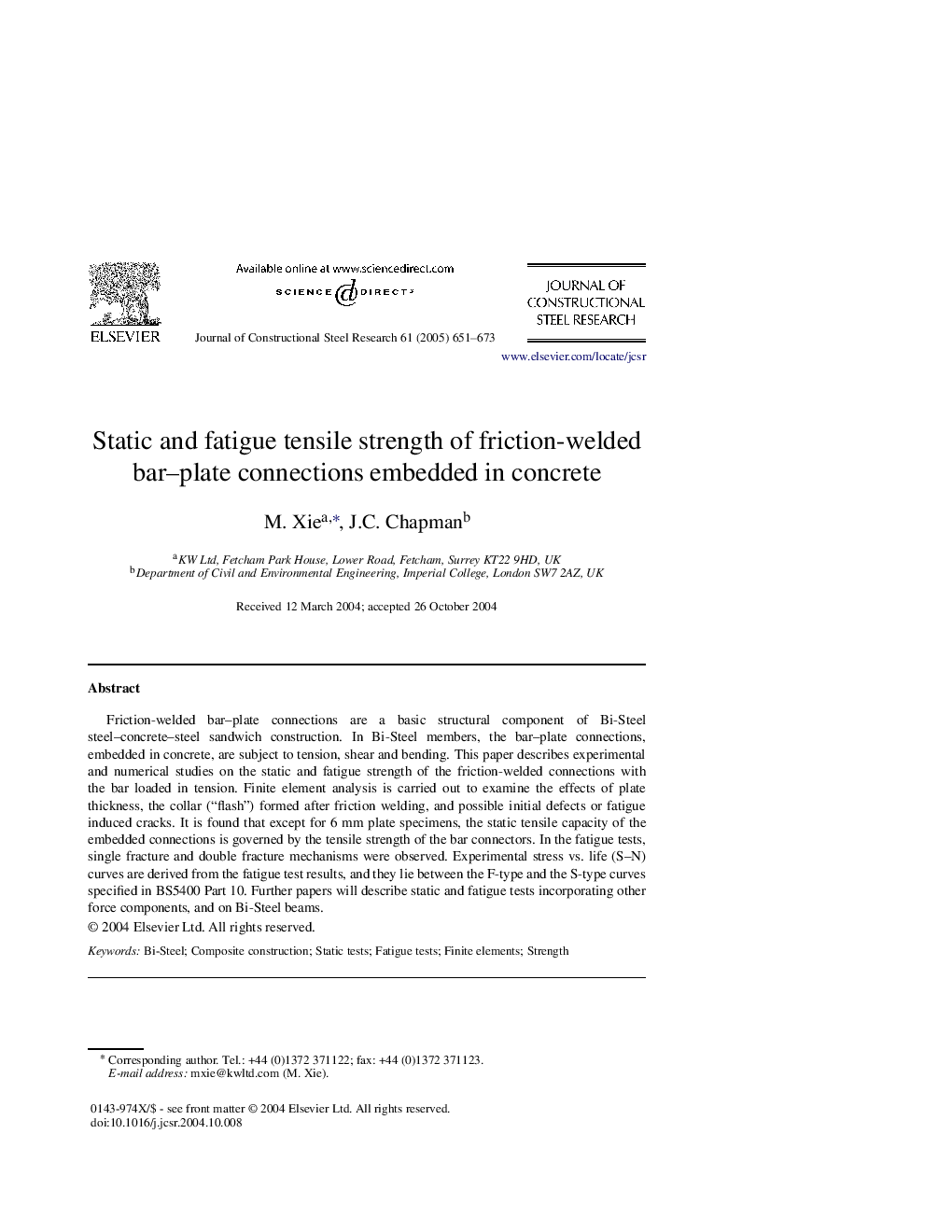| Article ID | Journal | Published Year | Pages | File Type |
|---|---|---|---|---|
| 10288832 | Journal of Constructional Steel Research | 2005 | 23 Pages |
Abstract
Friction-welded bar-plate connections are a basic structural component of Bi-Steel steel-concrete-steel sandwich construction. In Bi-Steel members, the bar-plate connections, embedded in concrete, are subject to tension, shear and bending. This paper describes experimental and numerical studies on the static and fatigue strength of the friction-welded connections with the bar loaded in tension. Finite element analysis is carried out to examine the effects of plate thickness, the collar (“flash”) formed after friction welding, and possible initial defects or fatigue induced cracks. It is found that except for 6 mm plate specimens, the static tensile capacity of the embedded connections is governed by the tensile strength of the bar connectors. In the fatigue tests, single fracture and double fracture mechanisms were observed. Experimental stress vs. life (S-N) curves are derived from the fatigue test results, and they lie between the F-type and the S-type curves specified in BS5400 Part 10. Further papers will describe static and fatigue tests incorporating other force components, and on Bi-Steel beams.
Related Topics
Physical Sciences and Engineering
Engineering
Civil and Structural Engineering
Authors
M. Xie, J.C. Chapman,
